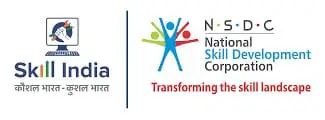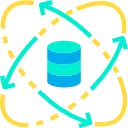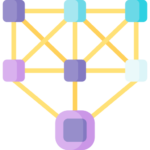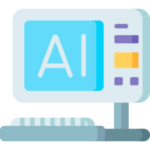How to Become a Data Analyst
- Get Trained by Trainers from IIT, ISB & IIM
- 184+ Hours of Live Classroom or Online Sessions
- 3 Capstone Live Projects
- Free Life-Time eLearning Access
- Dedicated Program Coordinator
- Re-attend Module with No Extra Cost
- 100% Free Internship
- 100% Job Placement Assurance
Academic Partners





Certification Courses

Data Analytics Certification

Data Engineering Certification

Artificial Intelligence
Data analytics is the process of examining and interpreting data to uncover meaningful insights and patterns. It involves collecting, cleaning, and analyzing data using statistical techniques, machine learning algorithms, and visualization tools. Data analysts use their expertise to extract valuable information from large and complex datasets, helping organizations make data-driven decisions. With the increasing availability of data, data analytics has become essential in various industries, such as finance, marketing, healthcare, and more. It empowers businesses to gain a competitive edge, optimize operations, and drive innovation through evidence-based decision-making.
Data Analytics Training
Data analytics training focuses on equipping individuals with the skills and knowledge required to analyze and interpret data effectively. It involves learning various techniques, tools, and methodologies to derive insights, make data-driven decisions, and solve business problems. Here are some key aspects typically covered in data analytics training:
Introduction to Data Analytics: The training typically starts with an introduction to data analytics, its importance in business decision-making, and the role of data analysts in extracting value from data.
Data Collection and Preparation: Data analysts learn methods for collecting and cleaning data, handling missing values, dealing with outliers, and ensuring data quality. They also gain an understanding of different data formats and data sources.
Exploratory Data Analysis (EDA): EDA techniques are covered to understand the structure, patterns, and relationships within data. This involves using descriptive statistics, data visualization, and basic statistical techniques to gain insights and identify trends or anomalies in the data.
Statistical Analysis: Data analysts learn statistical techniques to draw conclusions from data and make informed decisions. This includes hypothesis testing, regression analysis, time series analysis, and other inferential and descriptive statistical methods.
What will you learn?
In a data analytics course, you will learn a range of skills and techniques to effectively analyze and interpret data. You will gain knowledge in data collection, cleaning, and preprocessing methods, as well as statistical analysis techniques, including hypothesis testing and regression. You will also explore data visualization tools and learn to create compelling visualizations to communicate insights. Machine learning algorithms and predictive modeling will be covered, enabling you to build models and make predictions based on data. Additionally, you will develop proficiency in programming languages like Python or R and gain hands-on experience through practical exercises and projects. Ethical considerations, data privacy, and best practices in data analytics will also be addressed.
Data Analytics Course Objectives:
The objectives of a data analytics course may vary depending on the specific program or institution. However, here are some common objectives that data analytics courses typically aim to achieve:
Understand Data Analytics Fundamentals: The course aims to provide a solid foundation in the fundamental concepts, principles, and techniques of data analytics. This includes understanding data types, data structures, data cleaning, and basic statistical analysis.
Learn Data Collection and Preparation: Students will learn methods for collecting and preparing data for analysis. This includes data extraction, data cleaning, handling missing values, and transforming data into a suitable format for analysis.
Develop Analytical Skills: The course aims to develop analytical thinking and problem-solving skills in the context of data analytics. Students learn to identify patterns, trends, and relationships within data, and apply appropriate analytical techniques to extract insights.
Gain Proficiency in Statistical Analysis: Students will learn and apply statistical techniques to analyze and interpret data. This includes descriptive statistics, inferential statistics, hypothesis testing, regression analysis, and other statistical modeling techniques.
Acquire Data Visualization Skills: Effective data visualization is crucial for conveying insights and findings to stakeholders. The course aims to teach students how to create clear and compelling visualizations using tools and techniques such as charts, graphs, and interactive dashboards.
Learn Machine Learning Basics: Students will be introduced to the basics of machine learning and its application in data analytics. This includes understanding different types of machine learning algorithms, model training, evaluation, and interpretation.

What Our Learners Have To Say About Us

I am from a Non-IT background and i was looking for a good coaching centre in this institute for data science and Machine Learning course. By seeing reviews in google i joined this institute. Here course curriculum and additional sessions are nice and helpful. Mentors are very good and supportive. They teach concepts and coding in such a way that everyone will get interested and understand it easily. Thankyou mentors for providing beautiful sessions

Here apart from the course syllabus, they also teach value sessions for free which are most useful. I joined for a Data science and Machine Learning course. Worked on live projects after completing the course curriculum. These projects helped me in understanding how data related organisations work. This is a kind of realtime experience. All these made me confident to attend interviews. Thank you team.




